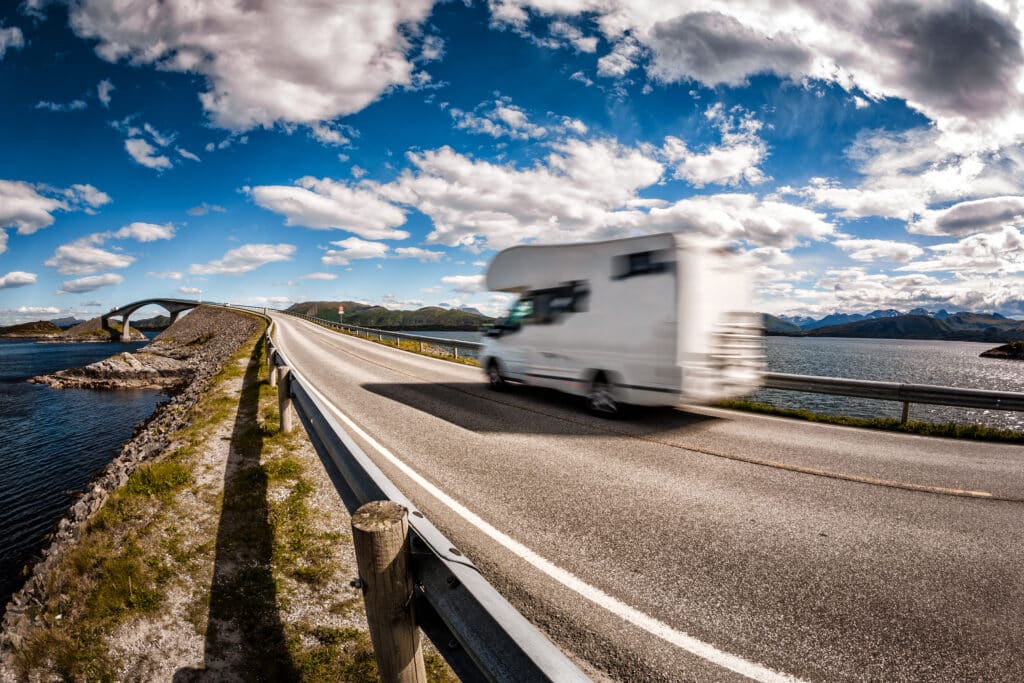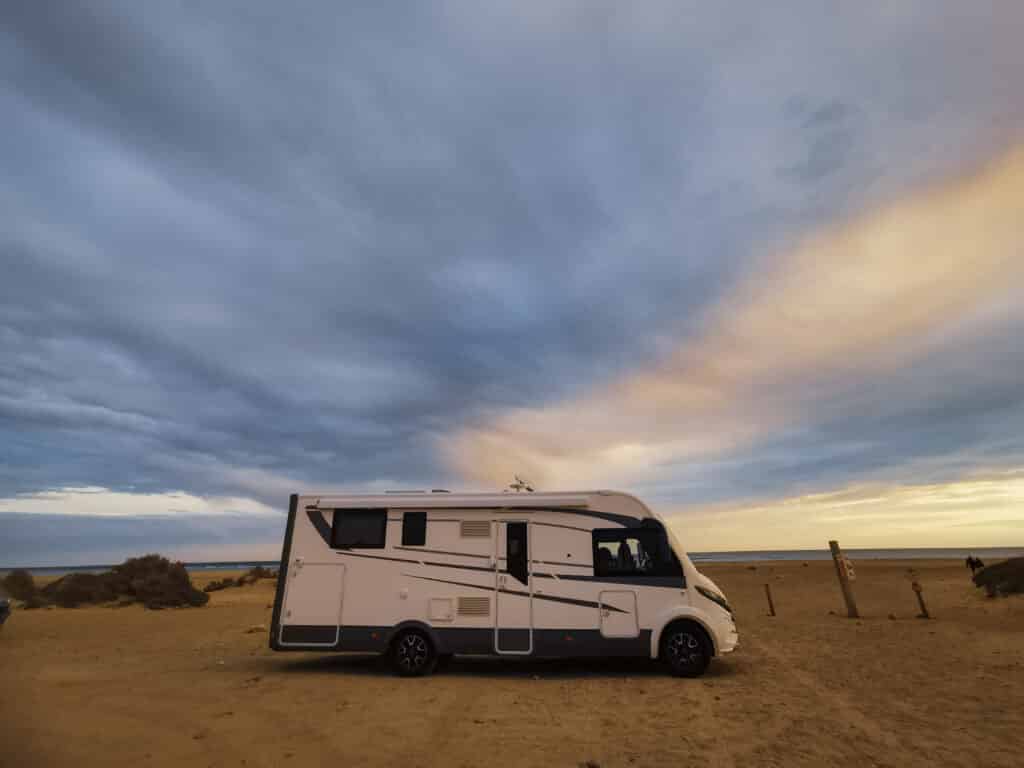Motorhome Safety
Our top tips for motorhome, road and weather safety
As an experienced motorhomer myself and the owner of Luna Motorhome Hire, I thought we should take advantage of recommending a number of tips and tricks to avoid any problems or injury when enjoying your motorhome or campervan hire break.


Vehicle Safety
Basic vehicle safety is a must when driving a vehicle as large as a motorhome. Of course you should check tyre pressures, tyre wear, ensure you have enough fuel for your journey, especially if you are visiting areas where fuel stations may be scarce. Check all your fluids before going on a long journey, washer fluid, power steering and coolant.
Before setting off, it is important to make sure all of your locker doors, garage doors, windows and skylights. When driving along these parts have a habit of flying away if not closed properly.
Habitation Safety
Motorhomes and campervans have what we call the ‘habitation area’. Generally the area you live, cook, shower and so on.
Being aware of the basics can help you have a wonderful break without any problems. It is essential you are make aware of gas safety. In your home, your gas supply is never really seen until you push a button on your boiler or start cooking on your gas hob. In a motorhome we have more control over the supply of gas.
Before you move off, you must ensure your gas supply is switched off for your own safety. Underslung tanks have a number of safety features which prevent gas from escaping if the tank is damaged but the bottles do not. It is important you shut off the bottle when in transit. You should also make sure the hand reel or connection is connected properly before use. Open up the bottle and ensure you can’t hear anything escaping within the gas cupboard. A CO2 monitor should also be on board your motorhome or campervan.
Your motorhome will also have an on board water tank. Its important to protect the motorhome from water damage but ensuring that your water tank is closed tightly and that you do not leave the water pump on when not using it.
There should always be a fire extinguisher on board the motorhome. Be careful when cooking with oil and remember not to put the glass lid of the hob back down until you have turned off the gas and waited for the hob to cool down to prevent it from breaking.
Ensure all items that have a sharp edge are stored away and safe. All internal drawers and doors should be shut before driving off.
Road Safety
Driving below 70 mph is a must when driving a motorhome or campervan. These vehicles are not built for speed. We suggest sitting at a calm 60 mph when driving on a motorway. When overtaking larger vehicles such as trucks, you will feel some pull back towards the larger vehicle, this feels like you are in their slip stream, take your time during these over takes.
Driving the panel van campervans is very much like driving a Ford Transit for example. Driving a motorhome is very different. For inexperienced drivers we recommend hiring a panel van conversion first to get the idea of it or a sub 6 metre motorhome. The larger motorhomes require a lot more attention when driving. The are usually between 2.9 and 3.2 metres tall and around 3.2 metres wide. It is important you take note of height restrictions when you are driving on the road.
Your motorhome could be up to 7.5 metres long, so it is important to remember that your turning circle has to be bigger than normal. Take note that your back end will go out further than you are used to, therefore could hit something as you pull away.
When reversing it is recommended that you have someone behind you watching you. If there is no one free, get out and look, take your time and move slowly.
Stormy Weather
Stormy weather can not only be bad for your holiday but can cause a number of problems on the road. With you being bigger, you are a bigger target for the environment to take advantage of if its having one of those days.
During high winds, we recommend finding a safe spot as quick as possible to wait for them to die down. Try not to park in open land, by the sea, cliff edges. When touring areas different to your own, remember the weather can be different from what you are used to. See if you can gauge the direction of the wind and park nose forward into it. Do not park close to trees if possible.
If the winds are high or stormy weather is expected before you start your trip, we would recommend delaying your trip or not heading to the area where high winds are expected.
A good idea is to check your weather app before leaving, we suggest that any winds higher than 40mph, those areas should be avoided.
If you are driving during high winds, be mindful that there could be debris falling or already in the roads. Make sure you reduce your speed. Controlling the motorhome is a lot easy at a slower speed. Let others over take you, there is no rush. Be particularly careful when you are crossing bridges. Ideally you should avoid the smaller country lanes as debris can be everywhere and the lanes are usually covered in trees. Open spaces such as national parks are not a good idea.
We unfortunately had an incident in one of our motorhomes where a motorhome was blown over in high winds. The story has been featured on The Guardian, BBC, The Times and The Scottish Sun

